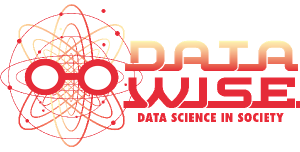I was very happy that I was invited to give a talk at the very interesting Science 2.0 Conference in Hamburg. Thanks to the perfect organization, the event was also documented very well with videos of the presentations (find them here). Here´s my talk:
Abstract: We live in a Beta-Society: Software is structuring almost all niches of society, including academia, and more often than not, it is in a permanent beta state. As such, it is never stable nor ready and we – the users – are constantly monitored for its improvement, subjects of an ongoing real-life experiment. At the same time, users and their data have become a commodity and their interactions the foundation of Web 2.0 platforms. Therefore, developers have lowered the interaction barriers as far as possible while hiding the complexity and actual social costs of their platforms and keeping them within their “walled gardens”. Specifically, scholarly communication is increasingly mediated and structured through these services, posing a number of challenges to the academic system: opaque algorithms re-ordering scientific relevance, new forms of peer review and quality management, lay participation and privacy threats to name just a few. The talk will address these issues by focusing on concrete examples of popular Web 2.0 platforms.


